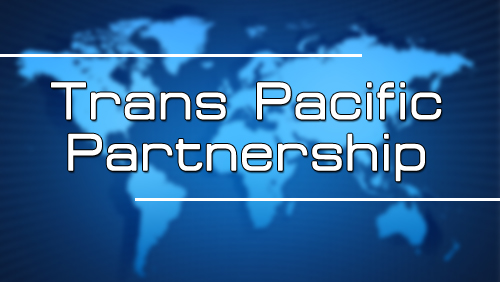 If you’re looking for something to be thankful for this week, here’s one you probably haven’t considered: be thankful that the Trans Pacific Partnership (TPP) hasn’t been ratified yet. If you’ve never heard of the TPP, you’re not alone. Much of the world had been in the dark about this proposed multinational trade agreement before WikiLeaks recently published a full copy of the proposals made this August. But if you were upset over SOPA, ACTA, or any of the other attempts by big corporate interests to restrict the internet for their own financial gain, you’re going to hate everything about TPP.
If you’re looking for something to be thankful for this week, here’s one you probably haven’t considered: be thankful that the Trans Pacific Partnership (TPP) hasn’t been ratified yet. If you’ve never heard of the TPP, you’re not alone. Much of the world had been in the dark about this proposed multinational trade agreement before WikiLeaks recently published a full copy of the proposals made this August. But if you were upset over SOPA, ACTA, or any of the other attempts by big corporate interests to restrict the internet for their own financial gain, you’re going to hate everything about TPP.
The TPP has been in the works for years now, the result of secret negotiations between a few hundred corporate advisors 12 countries. Australia, Brunei Darussalam, Canada, Chile, Japan, Malaysia, Mexico, New Zealand, Peru, Singapore, and Vietnam, along with the proposal’s main champion, the United States have been hammering out the deal outside the international channels (like the World Trade Organization) normally used for making such treaties. Before WikiLeaks’ move only a handful of passages had been leaked publicly, and even those didn’t help the issue gain much traction. The TPP’s bland name says next to nothing about how it proposes to radically change the way intellectual property laws are enforced worldwide – and that’s likely by design. If most people knew about the incredibly broad proposed scope of the TPP, they would be up in arms.
Big pharmaceutical companies, tech companies, and Hollywood would benefit greatly from the TPP but very few other stakeholders would be happy with it. As proposed, the TPP would make it illegal to jailbreak your phone or any other device outfitted with a manufacturer’s “digital lock” – and it would include measures to dissuade signees from passing laws of their own that go against the TPP. New criminal penalties for copyright infringement without commercial motive would be introduced, and the act of making a temporary copy of a copyrighted work – for instance, to move it from one device to another – would also be criminalized. The TPP would increase already lengthy copyright terms even further, from the life of the author plus 50 years to the life of the author plus 70 years, and give longer 120 years of copyright protection to corporate-created IP. It would also gut the fair use rights that allow people to use parts of copyrighted works for the sake of satire, parody, or commentary. Some of the more controversial passages proposed by the United States would even allow for patents on the inventions of plants, animals, and medical procedures.
Bundling just a handful of these proposals together would be enough to get a proposed bill shot down even in the country that has made most of these proposals. Perhaps that’s why a number of lobbying groups like the U.S. Chamber of Commerce are asking Congress to approve so-called “fast track authority.” If it were to do so, Congress would voluntarily hand over negotiating powers to the executive branch – a clear violation of the legislature’s Constitutional responsibility for handling treaties. From that point onward Congress would not be allowed to debate or negotiate any of the treaty’s points. So far 151 members from the Democratic party alone have come out in favor of such fast-tracking.
If you’re outside of the U.S. and think TPP sounds like no big deal, consider that any country that signs on to the deal will be forced to adopt its own identical version of the controversial, ineffective, and very pro-Hollywood American law Digital Millenium Copyright Act. And unlike the American version, which is at least partially hobbled by long-established fair use rights, these DMCA clones would face no such legal opposition. ISPs in other countries would be forced into acting as copyright police for American corporations, paying royalties for the right to enforce such laws. And there’s no guaranteeing that countries outside of the 12 partners trying to implement the TPP would stay outside of the regime for long. The U.S. Trade Representative, part of the executive branch, would be free to use accession to the TPP as a bargaining chip in future bilateral trade talks with non-signatory nations.
If people anywhere wanted a system like this, it would already be law. But nobody with a pulse wants this. Only corporations looking to please their shareholders do. Differing cultural values and legal systems are messy, and corporations don’t like mess. Through and through, the TPP is about making an end run around established governments and treaty organizations and forcing them into a bad deal, all in the name of corporate dominance over the people. It’s the kind of process that has no place in a democratic society.
The final TPP proposals to be sent to trade ministers was supposed to be hammered out in a one-week negotiating session Salt Lake City that ended this past weekend, but several of the targets were missed, showing signs of strain in the partnership. The ministers themselves are due to meet in Singapore from December 7-10, so we’ll have to wait until then to see whether the differences can be bridged – and if so, at what cost.